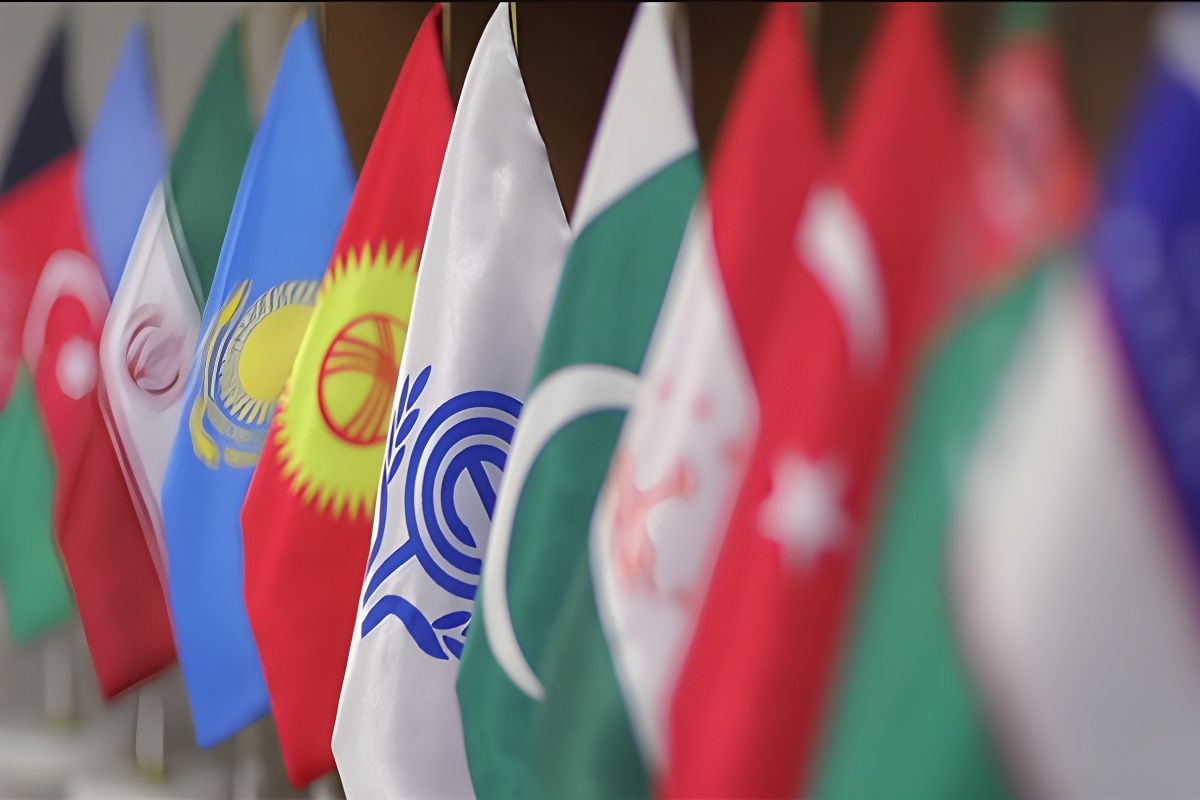The Economic Cooperation Organization (ECO) Business Forum, currently underway in the historic city of Shusha as part of the inaugural “ECO Week,” marks a pivotal moment for economic cooperation among member states. Jointly organized by Azerbaijan’s Ministry of Economy, the Azerbaijan Export and Investment Promotion Agency (AZPROMO), the ECO Secretariat, and the ECO Confederation of Chambers of Commerce and Industry, the forum underscores Azerbaijan’s rising prominence as a regional economic hub.
Azerbaijan’s active participation in ECO initiatives reflects its broader ambition to foster deeper economic integration within the region. Speaking at the forum’s opening session, Elnur Aliyev, First Deputy Minister of Economy of Azerbaijan, highlighted that trade turnover between Azerbaijan and other ECO countries reached $3.5 billion in 2025. This figure signals robust growth potential, driven by targeted reforms and strategic diversification beyond the energy sector.
The forum’s thematic focus - spanning food and agriculture, textiles, ICT, tourism, transport, and the circular economy - showcases a clear shift toward sustainable and diversified economic development. These sector-specific discussions, complemented by business-to-business (B2B) and business-to-government (B2G) meetings, are crucial mechanisms for catalyzing cross-border partnerships and investments.
Mammad Musayev, President of Azerbaijan’s National Confederation of Entrepreneurs (ASK), provided a sobering overview of the ECO’s economic landscape, noting a combined nominal GDP of approximately $2.4 trillion across member states, equivalent to 2.3% of global GDP. With a population exceeding 560 million and a vast geographical footprint of 8.1 million square kilometers, the ECO region holds significant untapped economic potential.
Musayev’s remarks highlighted that ECO member states export around $650 billion collectively, a modest 0.2% of global exports, underscoring the opportunity for expanding trade volumes through better regional cooperation and integration. Azerbaijan’s own foreign trade turnover with ECO countries now stands at $8 billion, constituting roughly 17% of its total trade - a testament to the growing importance of the ECO market to Azerbaijan’s economy.
Azerbaijan’s economic evolution, as emphasized by Musayev, is anchored in comprehensive reforms, entrepreneurship promotion, and digital transformation. These advances not only diversify the economy but also position Azerbaijan as a knowledge and innovation hub within the ECO. The focus on green economy, agriculture, digitalization, and logistics aligns with global trends, signaling Azerbaijan’s readiness to lead sustainable development initiatives regionally.
Significantly, the emphasis on B2B platforms at the forum suggests a pragmatic approach to trade expansion, one that prioritizes direct engagement between entrepreneurs to translate dialogue into concrete projects. Harmonizing regulatory frameworks and fostering joint ventures are identified as critical next steps to enhance the investment climate and economic resilience.
Yusif Abdullayev, Executive Director of AZPROMO, pointed to logistics as a pressing challenge confronting regional trade. With global transportation costs rising, ECO countries must coordinate to develop efficient trade corridors and address infrastructural bottlenecks. The mention of a new roadmap in coordination with the OIC Secretary General signals a strategic move toward addressing these systemic barriers through multilateral cooperation.
Abdullayev’s disclosure of $5 billion in investments from ECO countries into Azerbaijan over the past three decades reveals steady, yet untapped potential. The fact that up to 4,000 applications from local and foreign businesses have been submitted to operate in Garabagh highlights emerging opportunities in a post-conflict economic revival context, further emphasizing Azerbaijan’s role as a regional business gateway.
The participation of Atif Ikram Sheikh, President of the OIC Chamber of Commerce and Industry, broadened the forum’s scope by linking ECO’s ambitions with the wider Organization of Islamic Cooperation (OIC) economic agenda. Sheikh’s call for increased joint ventures, investment in sectors like agriculture, IT, minerals, and light industry, alongside coordinated policies on taxation and SME support, illustrates a holistic approach to regional economic development.
Furthermore, Sheikh’s emphasis on enhancing transport corridors, including the Istanbul-Tehran-Islamabad railway, underscores the strategic importance of connectivity to unlock trade flows and regional integration. Energy sector cooperation also remains a critical pillar, offering avenues for joint ventures that leverage ECO’s abundant resources.
The ECO Business Forum in Shusha serves not only as a platform for dialogue but as a catalyst for tangible economic integration within one of the world’s most geopolitically strategic regions. Azerbaijan’s leadership and active engagement within ECO highlight its ambition to be a linchpin in this process, leveraging its geographic position, reform momentum, and economic diversification.
For the ECO region to realize its full economic potential, sustained efforts toward regulatory harmonization, infrastructure development, and fostering innovation ecosystems are essential. The forum’s emphasis on trust, cooperation, and pragmatic business engagement offers a roadmap to achieving sustainable prosperity for millions across Central Asia, the Caucasus, and beyond.
The ECO Business Forum in Shusha stands as a critical platform not only for dialogue but for forging actionable partnerships that drive economic integration across one of the world’s most strategically important regions. Azerbaijan’s proactive leadership and commitment to reforms have positioned it as a pivotal key driver in this process, leveraging its geographic advantage and economic diversification efforts. However, unlocking the full potential of the ECO region demands continued dedication to harmonizing regulatory frameworks, modernizing infrastructure, and nurturing innovation ecosystems.
By fostering trust and promoting pragmatic business engagement, the forum lays a foundation for sustainable growth that could transform the economic landscape for millions across Central Asia, the Caucasus, and beyond — signaling a promising trajectory toward long-term regional prosperity.

